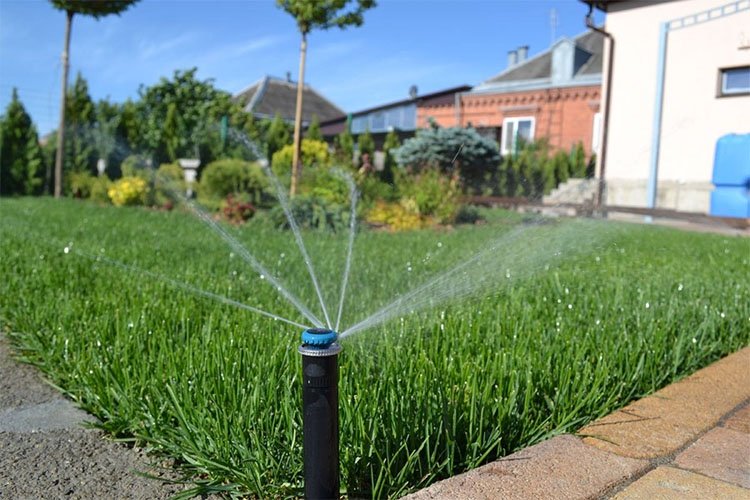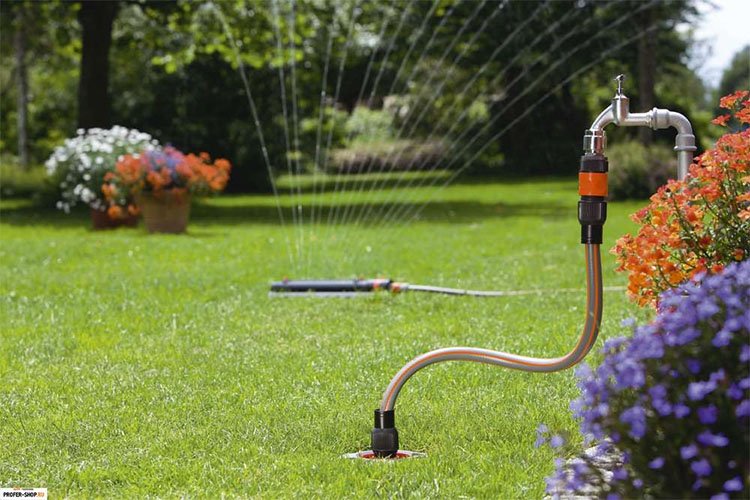Garden Irrigation

Irrigation
Everyone enjoys the site of colorful crape myrtles in bloom and the delicious flavors of fresh vegetables in the summertime. However, to keep garden plants at their best throughout the summer, they will need to be watered regularly. While watering your plants may seem simple enough, there are some tricks to watering the garden that may help your plants grow even stronger.
Most plantings around the home, including lawns, flower beds, and vegetable gardens need 1 to 1.5 inches of water or rain each week during the growing season. If there is a good soaking rain during the week, you can probably avoid watering. Otherwise, you will need to irrigate. It is best to water deeply and infrequently. You should avoid watering more than twice a week because frequent, shallow watering encourages shallow rooting. Your plants will be stronger and better able to tolerate stress if they are well-rooted.
You can determine the amount of water supplied by your irrigation system by placing a shallow container, such as a coffee can or glass jar, in the area being watered. Make a mark on the container one inch from the bottom. Then, time how long it takes for the water to reach the 1 inch mark on the container. If you live on a slope or have compacted soil, water may run off before it has time to penetrate the soil. To avoid run-off, reduce the volume of water you are putting out so that it takes longer to fill the container to the 1 inch mark. If you can"t control the volume of water, you can water for a short time, wait a few minutes to allow the water to soak in, and then water again.
The best time of day to water your plants is in the early morning. Watering in the morning conserves water by allowing it to soak into the ground without evaporating. Avoid watering at night because foliage will stay wet all night long leading to disease problems. Watering during the middle of the day also has its problems. Each water droplet that sits on a plant"s leaves will act like a magnifying glass and burn the leaves of your plants in the sun. In addition, if overhead irrigation is used during the middle of the day, much of the water evaporates before it ever reaches the ground. Watering in the morning conserves water, allows greater penetration of water, and reduces disease problems.
A good, thick layer of mulch in gardens and around trees and shrubs can greatly reduce the amount of water required by plants. Mulch reduces evaporation from the soil and cools the soil. In addition, mulch can act as a barrier to weeds which compete with your garden plants for water. Many different organic materials can be used as mulch including tree bark, chipped wood, pine needles, grass clippings, or dried leaves.
While water is essential for plant growth, it is possible to overwater. Plant roots need air as well as water and are not able to get enough air when flooded. We often see landscape plants die during the summer months due to overwatering rather than underwatering. Use the container method to determine how much water you are applying and don"t apply more than 2 inches of water per week. There should never be standing water in a flower bed or garden.
Plants will flourish during the summer months if cared for properly. Watering correctly is one of the best ways to keep your plants looking great all summer long.
